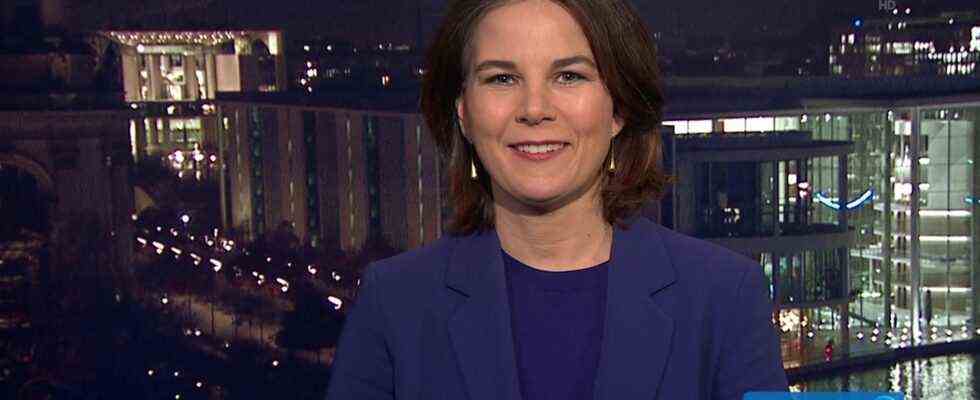Status: 11/24/2021 9:06 p.m.
The Ministry of Foreign Affairs is to be headed by the Greens in the future. Co-boss Baerbock has in the daily topics explains why this department is so important to get a strong climate policy off the ground. At the same time she announced a personality.
In the coming federal government, the Greens are to occupy five ministries. You are not only allowed to run a super ministry for the economy and climate protection, but also the foreign ministry. The transport department, on the other hand, falls to the FDP – even though the transport turnaround is actually a core issue for the Greens.
In an interview with the daily topics now tries to explain why your party is better able to push through climate policy goals in the foreign ministry than in the transport ministry. “We can only create major domestic political issues such as climate neutrality together with a globalized world,” she said. For a strong climate policy, an active European and, above all, a German international foreign policy is needed. After all, the modernization of the economy and the maintenance of prosperity depend on it.
Guard rails for climate neutrality
“It is important not to think about climate policy nationally, but in a European context,” she added. Germany is part of the common European internal market, which is linked internationally. In this context, she referred to the German car companies, which mainly produced for export. “Transport policy, foreign policy and climate policy must go hand in hand in the future in order to get the climate crisis under control,” she said.
She made it clear that the coalition agreement between the SPD, the Greens and the FDP set the guidelines for climate neutrality. These requirements now have to be implemented domestically. “Of course the many wind turbines, emission-free cars and power lines have to be built.” It will be a huge effort to tread the 1.5-degree path – not only for the departments, but also for the economy and society internationally. “But if we don’t do it now, we won’t be able to convert Germany into a climate-neutral way,” warned Baerbock.
15 million e-cars by 2030
The designated traffic light coalition partners had agreed in their contract to end the fossil fuel age step by step. To this end, the coal phase-out should “ideally” be brought forward to the year 2030 and the technology of the internal combustion engine phased out, as stated in the coalition agreement.
In addition, the parties have set the goal of putting a total of 15 million e-cars on German roads by 2030. In addition, the coalitionists in the European Union want to campaign for a minimum CO2 price. Electricity customers should be relieved. On January 1, 2023, the financing of the billions in the EEG levy to promote green electricity through the electricity price is to be abolished.
Due to the high energy prices, the CO2 tax on fuel, heating oil or gas should not be increased any further for the time being. In view of the current price level, they are sticking to the price path that has been decided for social reasons.
Habeck is to become Vice Chancellor
Baerbock let in an interview with the daily topics open whether she will move to the foreign ministry herself. She said that she had made her plea for more international cooperation in order to achieve climate neutrality as the Greens co-leader. The party committees would decide on the appointment of the ministry in due course. She also made it clear that she will not be Vice Chancellor. According to an agreement, her colleague Robert Habeck will take over this office.
Annalena Baerbock, Chairwoman of Alliance 90 / The Greens, on the coalition agreement
Topics of the day 10:15 p.m., 11/24/2021

